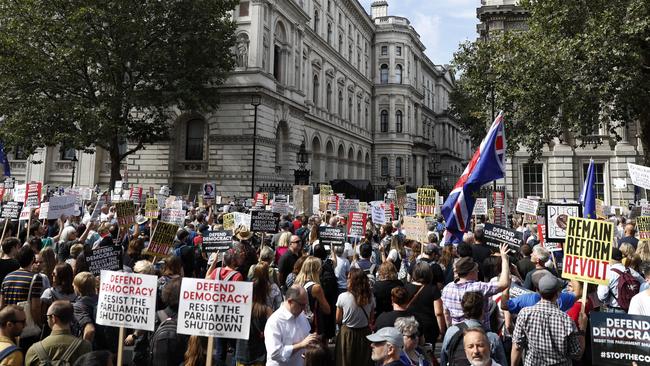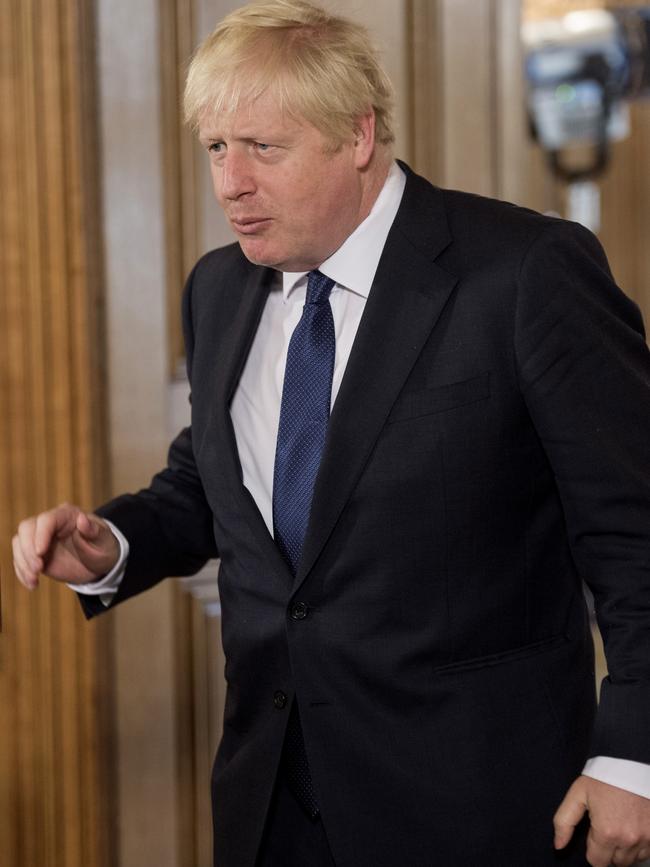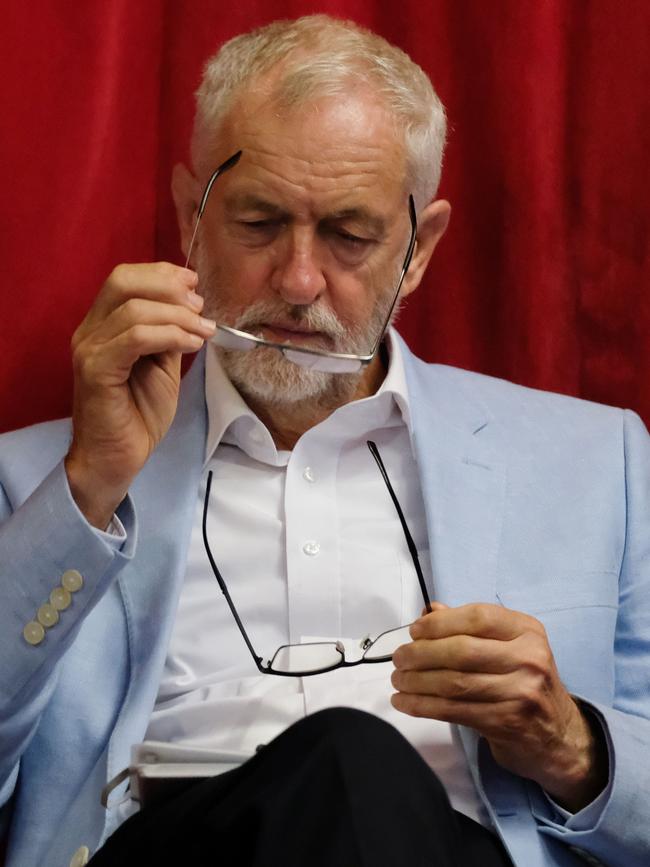How an explosive week will play out in Westminster
Westminster is set for an explosive week as MPs attempt to take control of the Commons agenda to block a no-deal Brexit.

British MPs are getting ready for one of the most explosive weeks in Westminster since the UK voted to leave the EU three years ago.
On Tuesday a coalition of Labour and rebel Tory MPs will attempt to take control of the Commons agenda to force through legislation compelling the government to secure another delay to Brexit if they fail to agree a deal with the EU by October 31.
But as Boris Johnson digs in against the Remainers, the end of the week could see his government toppled, his party fatally purged and an autumn election.
This is how the week will play out.
Monday:
Boris Johnson has already warned rebel Tories that he will remove the whip from any who vote to block a no-deal Brexit and ban them from standing as a Conservative candidate at the next election.
Jeremy Corbyn will hold a shadow cabinet meeting. He appears to have accepted that he should allow efforts to legislate against no-deal to proceed. If these efforts fail over the week, however, a confidence motion becomes very likely.
Tuesday:
Opposition leaders and Tory rebels are expected to ask John Bercow, the Commons Speaker, to grant an emergency debate, the first of a series of vehicles they need to legislate to block no-deal. Mr Bercow is expected to allow the request and while it is customary for emergency debates to take place the next day but the Speaker could grant it immediately.
Whenever it takes place, opposition MPs will use it to seek to table a business motion that allows them to seize control of the Commons agenda. Given Mr Bercow’s willingness to bend the rules to let parliament express its will, it is likely that he will allow the move to introduce a bill demanding that the government secure another extension. Tory rebels are confident that they have more than enough numbers to outweigh a handful of Labour MPs who will not support the move.
However rebel Tories who defy Mr Johnson and vote with Labour will be expelled from the party in a move that will see the government lose its majority and lead to an autumn election.


Wednesday:
Having seized control of the agenda the rebel alliance thinks it can push the bill through the Commons within a day or two.
However if the government loses the first vote, Boris Johnson has threatened to call a snap election. If that is passed with a two-thirds majority - meaning Labour would have to support it - an election will be held on October 14. However, while Labour has indicated its support for an early poll, Tory rebels may resist a snap poll in order to trap Mr Johnson in a minority government if he carries out his pledge to deselect them should they defy the whip.
To complicate matters further, if MPs have succeeded in taking control of the Commons agenda, it is possible that the government may not be able to have its motion voted on until the rebel bill is passed.
If the bill continues through the Commons, timing is crucial: the bill must make enough progress through the Commons now to pass through later stages in the House of Lords before parliament is prorogued next week.
For added entertainment, Mr Johnson will face Mr Corbyn for the first time at the dispatch box in Prime Minister’s Questions.
Thursday:
If the bill passes the Commons, it also needs to clear the Lords. Although dominated by Remainers, there are concerns Mr Johnson will ensure the bill is“talked out” by pro-government peers. However rebel MPs believe devices exist to prevent a successful filibuster. Rebels are prepared to sit through the weekend to ensure that the bill is passed by Monday the government suspends parliament until the Queen’s Speech on October 17.
If the legislation passes: Mr Johnson might ask the Queen to refuse her assent but it is more likely that he will assert the legislation isn’t binding, or is overridden by other legislation.
If the legislation fails: Mr Corbyn is expected to table a motion of no confidence, potentially bringing down the government and triggering a 14 day period to allow the Labour leader to try to form a government.
However opposition leaders may also need to amend the Fixed Term Parliaments Act, which determines the timing of an election, to stop the UK from crashing out during the campaign.
The Times, Agencies


